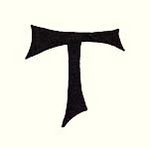
It would be easy to rejoice for Kosovo’s status as the worlds nest nation. However, there is nothing simple about it. The United States, the E.U., England, France, Italy and Germany have recognized the sovereignty of Kosovo. However Spain, Cyprus, Romania, and Greece have joined China and Russia in opposing independence. Those supporting Kosovo point to a history of abuses of the Albanian Muslim majority in Kosovo by the Serbians when the Serbs ruled the area. Indeed the history of war and ethnic cleansing that marked the dissolution of Yugoslavia at the end of the Cold War and into the 1990s makes it hard for people to be sympathetic to the Serbian position. However, things are never simple in the Balkans.
Those opposing independence fear this may only fuel the ambitions of other separatist movements. Indeed Canada’s initial silence may be viewed as the silence of a nation that supports human rights but knows what it means to struggle with separatist movements. Many wonder how the United States, a nation who experienced its bloodiest war stopping its own member states from succession can now support what it denies to its own citizens, the right to succeed from the union.
The Metropolitan of the Russian Orthodox Church made it clear that the Church was in solidarity with the Serbian Orthodox Church. Many in the world-wide Orthodox community view Kosovo independence as a loss for Orthodoxy. Archbishop Gjergji of the Catholic Church in Kosovo addressed the European Parliament. He stated that the role of the Catholic Church would be to build bridges between the Muslim Albanians of Kosovo and the Orthodox of Serbia. The bridges will be necessary.
While the world reacted in horror to the destruction of Hellenistic-influenced statues of Buddha in Afghanistan by the Taliban the world has been silent to such cultural destruction in Kosovo. Over 18 historic monasteries, churches and cathedrals have been leveled to the ground. The world finally recognized the abuse of the Albanian nationals we must recognize the destruction of Serbian history and culture in Kosovo.
There is the potential for compromise and de-escalation of tensions. The Catholic Church could become a vocal supporter of Orthodox positions they can agree on while also supporting human rights and nonviolence. Turkey could use its influence to moderate Kosovo’s behavior and advise them to become active protectors of Christian history within their boundaries. This coupled with a new zeal to protect its own Christian citizens and heritage might garner Turkey needed support in the E.U. Russia could continue to support Serbia through the U.N and in diplomatic efforts while not fanning greater conflict in the area. The United States could acknowledge that Kosovo independence is a painful loss for Serbia . Serbia, as it has with the other break away nations of the old Yugoslavia, could learn to live with its new neighbor in the hopes that Serbian citizens could visit historic sites in Kosovo.
These are all coulds, ifs, maybes. However, there is another option. There was another time of conflict in the Balkans when nations missed chances for peace and instead stumbled into the First World War. Let us pray for cooler heads and for eyes that can see the grief conflict would bring.













No comments:
Post a Comment